Trump lays out pathway to citizenship for immigrants
- Published
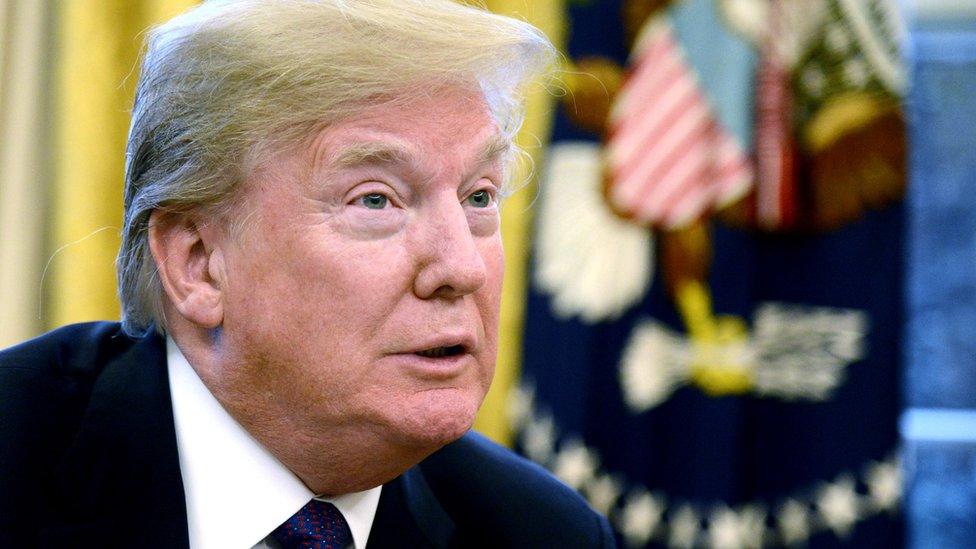
President Trump ended the Daca programme in September
President Donald Trump has said he is open to a deal that would create a path for citizenship for undocumented young people brought to the US as children.
Mr Trump said immigrants protected by the Deferred Action for Childhood Arrivals (Daca) programme could obtain citizenship after "10 to 12 years".
His comments came as the White House said it would unveil a legislative plan on immigration on Monday.
He told reporters the deal would be contingent on border wall funding.
"We're going to morph into it," the president told reporters on Wednesday during a meeting with his chief of staff John Kelly.
"It's going to happen, at some point in the future, over a period of 10 to 12 years."
Mr Trump plans to unveil the framework of an immigration deal that will include $25bn (£17bn) for a wall between the US and Mexico and an additional $5bn for border security programmes.
This includes measures to curb family sponsorship of immigrants and an end or change to the visa lottery programme.
What is Trump's plan for Daca?
Mr Trump cancelled the Obama-era programme in September and gave Congress a March deadline to come up with a new plan for the 700,000 undocumented young people registered under Daca.
The president has so far rejected bipartisan proposals that have been presented to him.
The missing - consequences of Trump's immigration crackdown
Most recently this led to a three-day government shutdown that ended on Monday when Democrats agreed to vote to fund the government until 8 February.
On Wednesday, Mr Trump said he was optimistic that a deal on immigration would be reached that included keeping the so-called Dreamers in the country.
He added that it was "incentive" for so-called Dreamers to work hard and "do a great job".

Clock is ticking
Anthony Zurcher, BBC News, Washington
There's a quote from Mark Twain that if you don't like the weather in New England, just wait five minutes. The same could be said of Donald Trump's position on immigration.
One day he'll accept - and take the heat for - any bipartisan deal Congress might strike. Later, he insists any agreement must include funding for his border wall and sweeping changes to legal immigration.
During the shutdown, he painted Democratic efforts to get a Daca vote as support for "unchecked illegal immigration". On Wednesday, he expressed an openness to giving Daca recipients a path to citizenship - something many of his supporters deride as amnesty for lawbreakers.
This could be part of some grand "art of the deal" presidential strategy, of which will only be revealed in hindsight. Or perhaps congressional parties should focus on people like chief of staff John Kelly, who stayed in Washington to negotiate while the president hob-nobs with the global elite in Davos.
Either way, the clock is ticking toward another budget showdown. If the immigration impasse is to be surmounted, a solution needs to emerge quickly.

What's happening in Congress?
Republican senator Lindsey Graham applauded the president's comments and called them a major breakthrough.
"President Trump's support for a pathway to citizenship will help us get strong border security measures as we work to modernize a broken immigration system," he said in a statement. "With this strong statement by President Trump, I have never felt better about our chances of finding a solution on immigration."
Mr Graham was one of a group of bipartisan senators who went to the White House with a proposal on immigration that ended in the president using a vulgar term to refer to Haiti and some African countries.
Talks on immigration have started up once again and Mr Graham, along with a bipartisan group of three dozen senators, met Wednesday to work on possible immigration legislation.
For any new immigration laws to be created, both the Senate and the House of Representatives would have to approve a bill.
In Wednesday's conversation with reporters, Mr Trump also said he is prepared to be questioned under oath as part of an investigation into alleged Russian meddling in the 2016 US presidential election.

More on Trump and the border wall
Wall prototypes being displayed at US-Mexico border
'Build that wall' says border resident
- Published12 January 2018
- Published21 January 2018
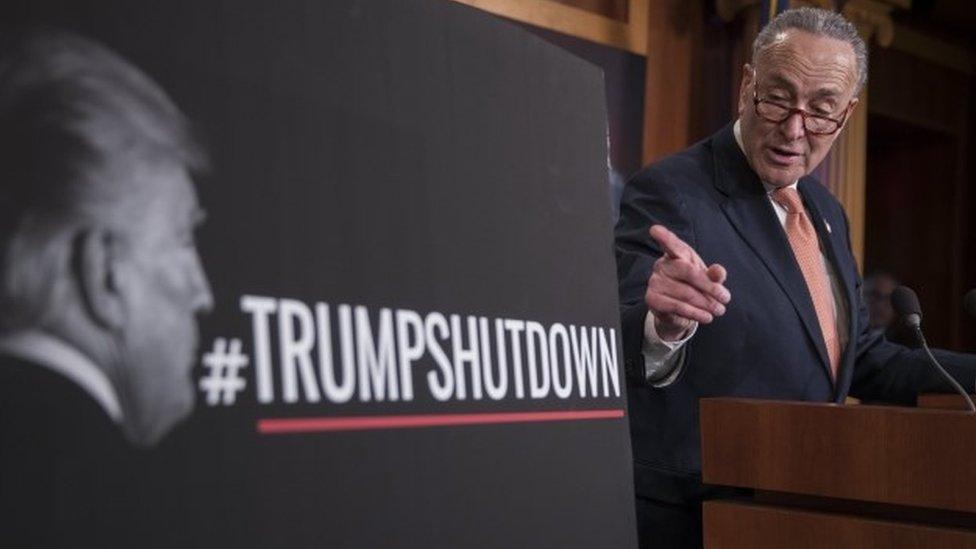
- Published9 January 2018
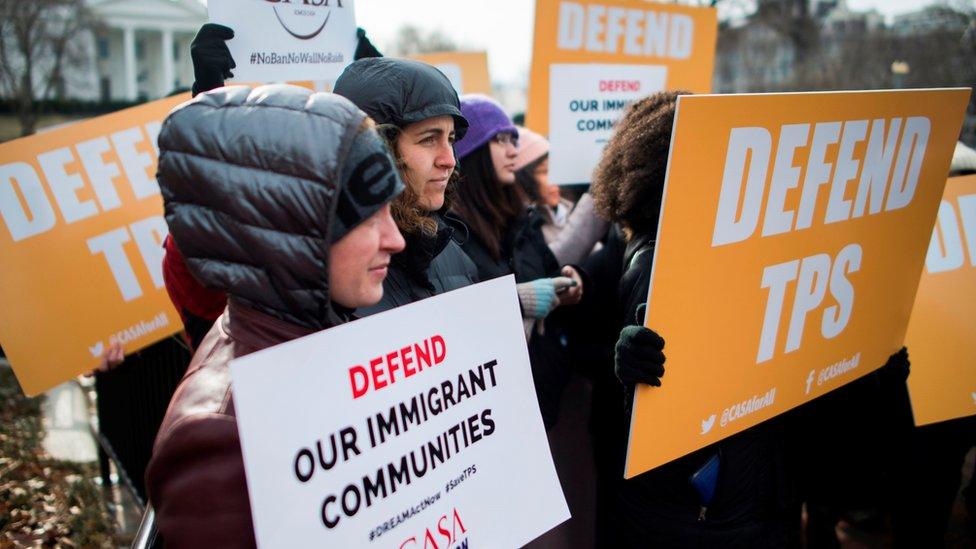
- Published25 January 2018
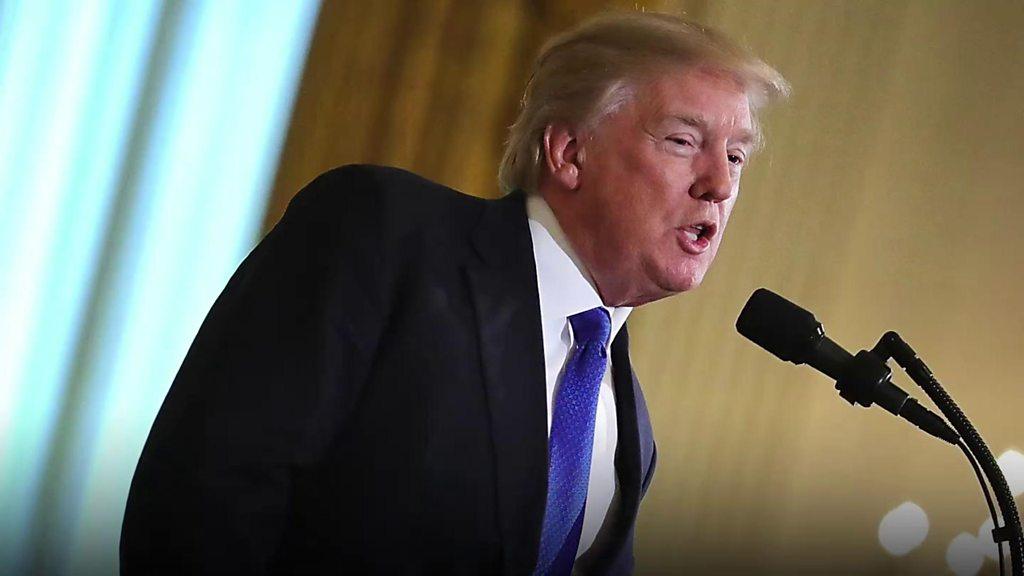
- Published24 January 2018
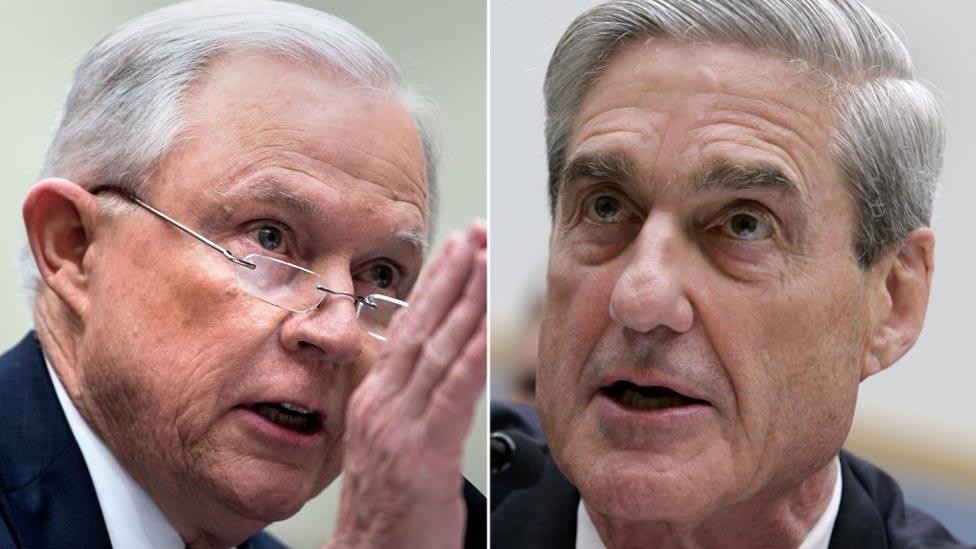
- Published25 March 2019
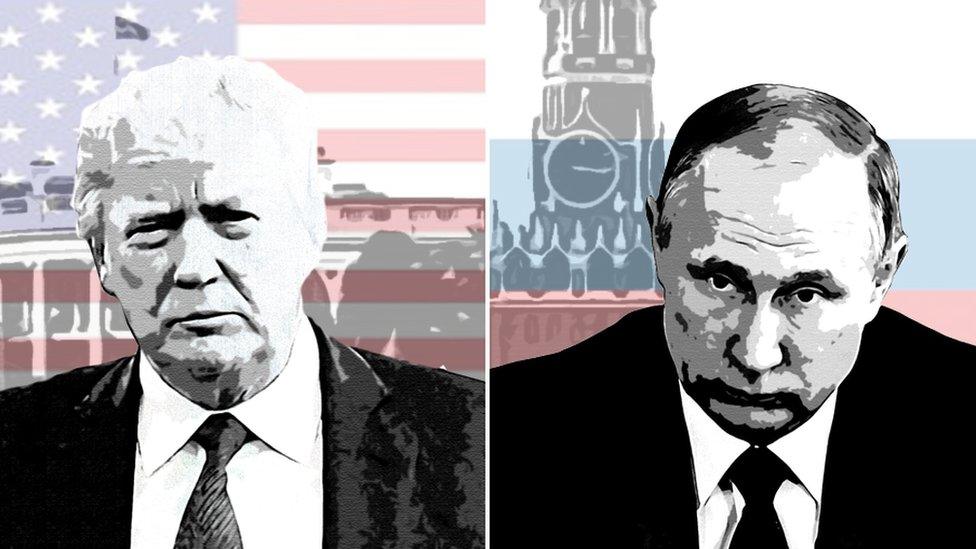
- Published24 July 2019
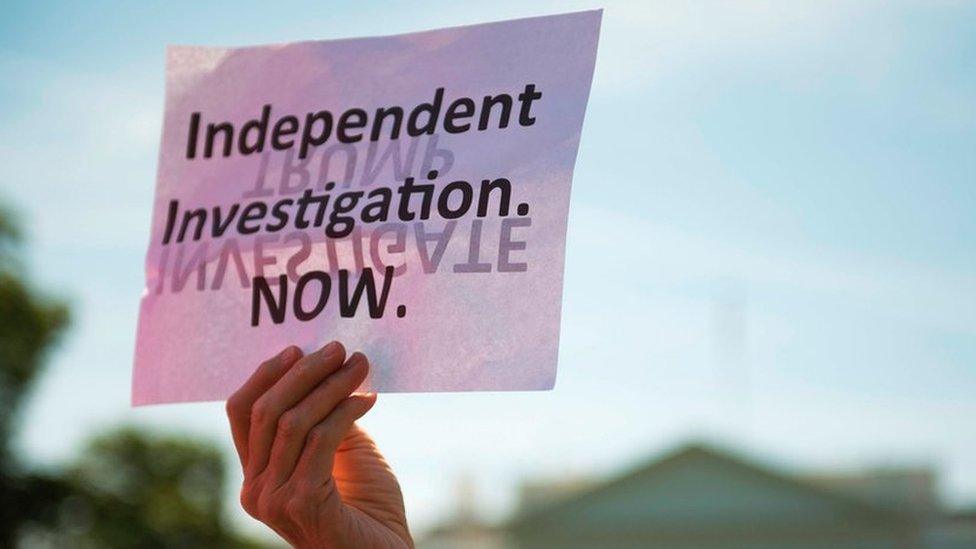
- Published10 May 2017